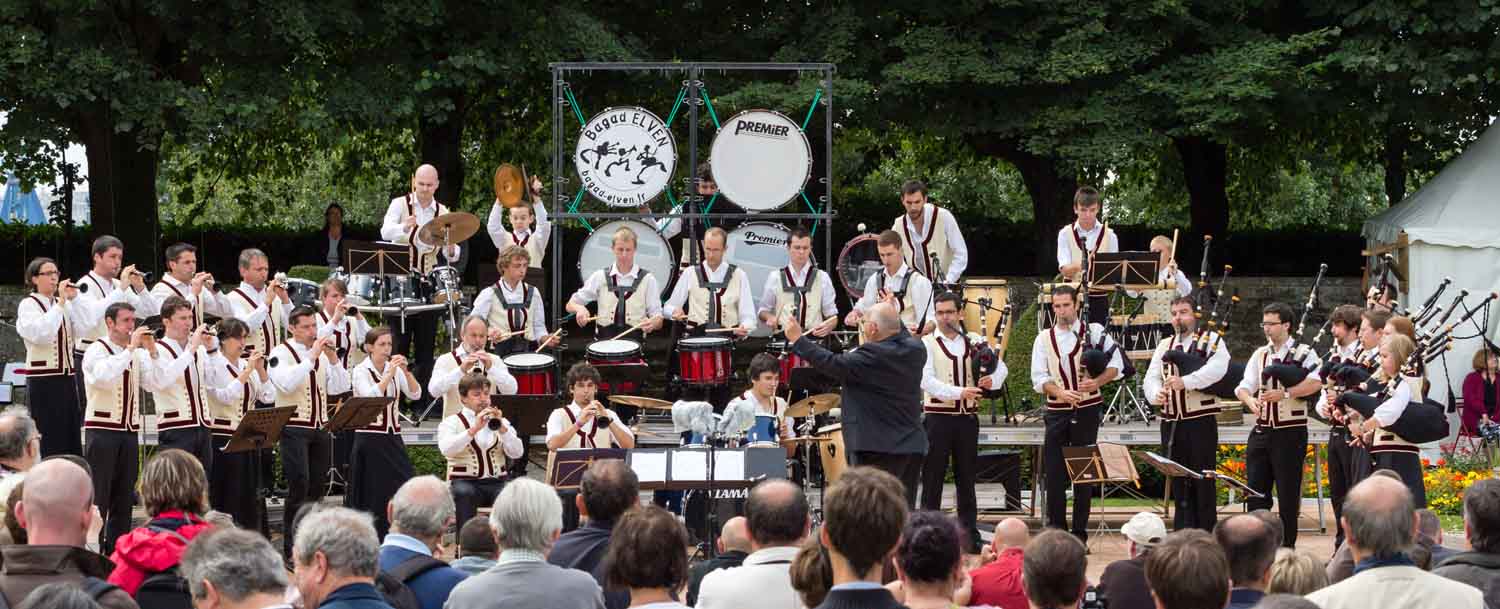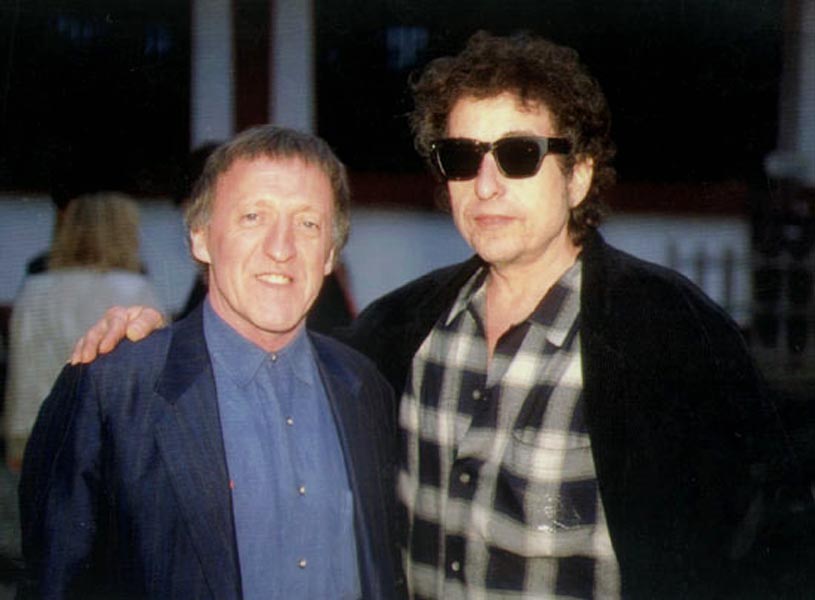Opinion: The future for piping and drumming must put an emphasis on performance, not perfection
A fundamental change must occur if piping and drumming is to thrive or even survive in any meaningful way.
In short, we have to put the performance – the entertainment value for non-players – first and clinical precision second.
For more than 35 years, we’ve called for a musical change to our stagnant, precision-obsessed competition culture. Astonishingly, the pipe band medley hasn’t changed in any meaningfully acceptable way. Yes, there are new tunes, more sophisticated arrangements, and orchestrations, but the core structure of what we play is essentially the same as in 1983.
Any company or industry that has one product in one version that hasn’t changed in more than a century . . . well, we wanted to say that that company would be in trouble. But the truth is, no hundred-year-old company or industry like that is still around.
So, let’s forget about throwing funky new music into competition medleys or mini-medley MSRs. As long as the RSPBA – which controls the competing pipe band because of our addiction to doing well at the World Championships (also discussed here many times) – we need a fundamental shift in what we consider “good.”
We need to replace the emphasis on precision with a preference for performance.
How often will we have to hear from competitors, “We should do what the Breton bagads do!” until we finally make changes?

While still playing to exacting standards, Breton bands emphasize performance over precision. They dig into their traditional and new music for over 15 minutes and put on stadium-filling shows while competing for significant accolades. The top bagads have sizable followings across France, not just by other pipers, percussionists and bombard players, but by music enthusiasts of all stripes.
Or look at what Drum Corps International did 52 years ago. They knew that their marching band niche wasn’t sustainable if they wanted to have any future success, so they relaxed musical and visual requirements, emphasizing creativity rather than dogged adherence to tradition. Like the Breton bands, the result is a worldwide competition/performance system that draws massive crowds.
On that note, thank goodness for the rise of the mid-section. Tenor drummers are today’s competing pipe band’s most exciting and entertaining aspect.
Associations can change rules and requirements and work with accredited and future judges to open their minds to what’s possible, rather than summarily put down any perceived threat to the familiar.
Tenor drummers realized in the 1990s that they could perform with a flourish (literally) while contributing musically and precisely. Until Tyler Fry and Haggis MacLeod, and a few others resurrected the fine art of flourishing, tenor drumming had collapsed to being essentially superfluous and boring, a waste of perfectly good uniforms and expensive instruments.
Modern mid-sections are often criticized by persnickety pipers and drummers who resent that it can take only a year or two to be of Grade 1 calibre and, not only that, these pipe band heretics actually smile and visibly enjoy themselves in competition.
Some way somehow, modern mid-sections were accepted. When you look back and see how many famous traditionalists tried to shut down the resurgence of flourishing, multiple drums tuned to different pitches, and those smiling and enthusiastic faces, it’s a miracle that they have survived, evolved, and thrived.
And the reasons for that thriving might be no more complicated than the fact that many tenor drummers were early social media adopters. They banded together online to ward off and shut down the naysayers, so much so that others learned not to mess with them lest they, too, get cancelled. When the late Jimmy Hutton – a great pipe band snare drummer and powerful RSPBA judge – tried to quell an uprising by mid-section musicians, he faced an online wrath that made him spin back into retreat.
Tenor drummers created a cohesive union and fought back against fuddy-duddy naysayers. They evoked change with an effective tactical barrage of online firepower.
The most popular and visible elements of the piping and drumming world are, by far, not competition-based. The Red Hot Chilli Pipers, Rolling Drones, Modern Piping, Ally the Piper . . . all prove that musical performance, orchestration and creativity – not clinical precision – attract audiences.
But, the funny thing is, they also perform with musical excellence, which shows up in the performance. It’s in tune and rhythmical, visually appealing, accessible and entertaining for players and non-players alike.
And look at the National Piping Centre. The head of the organization, Finlay MacDonald, is a performing musician, not a competing piper. He never was. Down the street from the NPC is the Royal Conservatoire, where pupils are taught how to be musicians, and not solely how to win competitions. Meanwhile, if they teach at all, most associations instruct bands, pipers, and drummers on how to win prizes rather than build an audience.
Once again, we look to associations to make a profound shift, to guide the art away from 100% clinical competition to an emphasis on performance, and to build new audiences that, to a great extent, have already been built by the performers mentioned above.
Associations can change rules and requirements and work with accredited and future judges to open their minds to what’s possible, rather than summarily put down any perceived threat to the familiar.
It’s an existential challenge. We must put performance before precision unless we prefer to watch our competition-driven art form shrink into oblivion.
What do you think? We welcome your thoughts via our Comments feature below.






Great piece!
My mother (not a piper or drummer) recently watched the livestream of the Virginia International Tattoo American Pipe Band Championships, which included six Grade 2 bands and four Grade 3 bands. All she could talk about afterward was Scotch College Perth, a high school band from Australia. They didn’t compete, but they performed audience favorites (Glasgow Police Pipers, Steam Train to Mallaig, Amazing Grace, etc.) as entertainment between events.
Bravo – well said!
Great article and a theme that I have long thought about. Pipe Band competitions need to be audience focussed and encourage innovation.
Getting very tired of the same recycled opinion saying we need to change everything about competitive play so that more people will watch us. What we ought to do is promote good bagpipes and bands, not the kitschy stuff that the red hot chilli pipers do. Focusing on performance over precision will not help anyone in the future and will devalue the instrument as a whole.
If the goal of this conversation is to place a focus on the need to improve audience attendance and nurture the general public’s engagement with piping, drumming, pipe bands, and Games, in general, I could not agree more.
If the premise is that piping competition traditions and the MSR/Medley format should be set aside and some form of redesign for ‘entertainment purposes’ be substituted, I could not disagree more.
I won’t waste time with some sort of long winded and defiant defense of the traditional MSR/Medley format for band competition. That’s not the point, here.
Simply stated, I believe that there is a place (market) for this format, there is value, and it should not be summarily dismissed because it may no longer carry the full weight of audience appeal that it has enjoyed in the past.
Our tradition of style and presentation is woven thru our music. It is part of what most of us enjoy and cherish separate from our playing.
But, I agree that audience engagement needs help. And, Games everywhere need to increase attendance to begin to cover ever increasing costs.
This means that existing audiences must be satisfied and new audiences must be cultivated.
To dismiss the traditional PB competition format as a spent commodity would be a mistake.
Why not add to it?
Why not add (for lack of a catchy title) an Open Performance Category?
10 minutes (or so) and do whatever you want within the genre but some creative stretching allowed.
No juggling.
😝
Yes, and needless to say, there are challenges to pulling this off.
Rethinking daily scheduling.
If any band can join in you may have too many for any single day. Maybe only the highest Grade bands in any given Games?
Maybe this is a stand-alone evening component that many Games could handle.
But, if this Open Component could be included, it may well be the answer to the goal of increasing audience attendance and engagement without, as they say, “throwing out the bairn with the bath water.”
IMHO
To respect tradition, leave the MSR as is. But somebody PLEASE move forward with breaking away from a march in to a five stroke roll, attack, form a circle with your back to the audience Medley. WHY? “Because that’s the way we’ve always done it.” Yeah, ever since Donald Shaw Ramsey was SO good they had to accept it. There are many interesting ways a band could open a Medley, and so many formations that would be more interesting for an audience to watch as we play.
A very timely article in a year when competitions have become uneconomically viable. If this is not a wake up call for the RSPBA to take action then the current association structure is doomed and musicians will find a better way.
If you want something musical turn your ear to the folk scene. There’s some amazing young musicians putting their spin on things. It sound like you’re burned out
Isn’t it folk music that we perform? Thanks for your concern, but burned out people don’t typically want to rescue an increasingly unpopular or even dying dying format for what should and could be a vibrant and engaging artform. We need to rebuild an audience to allow us to sustain what we do.
I suppose you are correct that we play folk music. I’ve always thought of pipe bands as some form of military drills. The folk music I mean would be the likes of Brebach, James Duncan MacKenzie, Fred Morrison, Ross AInslie, Brighde Chaimbeul, etc…. Not necessarily all GHB but they all seem to have to have some freedom to express themselves in a way that doesn’t involve compromising what they do musically. No kilts, No silly dances, No tartan shortbread tin image.
I applaud your efforts for trying to move things forward. I don’t see how that happens in competition, especially the Worlds. If they introduced a suite where the band took a concert formation we would likely end up in the same situation we are in now with the medley. Everyone would end up chasing the prize and copying what worked in the past instead of finding creative musical ways to entertain themselves and the audience. Perhaps a better solution might be to limit the size of band, have a traditional MSR and then an anything goes 6-10 minute perfomance where the tunes must be composed by members of the band. That still feels a bit shallow to me. I don’t have a solution that doesn’t feel like a band aid. Not a pun. I suspect a large issue is the lack of transparency from the RSPBA. They could take a page from The Piobaireachd Society and try doing things for the players and the music.
I don’t know how we’re meant to keep our art going. I see a lack of interest even from the players I know. Maybe everyone should try to get one or two friends to come watch them. That would certainly help with ticket sales. I always have asked friends to come watch if they expressed interest in my playing. I can’t say I see a lot of support from pipers and drummers. Once they’re done playing they have no interest in watching a higher grade solo contest or even the young ones. The ones that do play solos grab their crit sheet and they either go home or stay in their band area.
I wasn’t ready to play in the last contest so I went to watch. I spent most of the morning listening to solos and watched all the bands play. If there’s a piping album I want I pay for it so the artist gets something for the tremendous enjoyment I get from listening to their music. We need to support each other. We’re not that large a community.